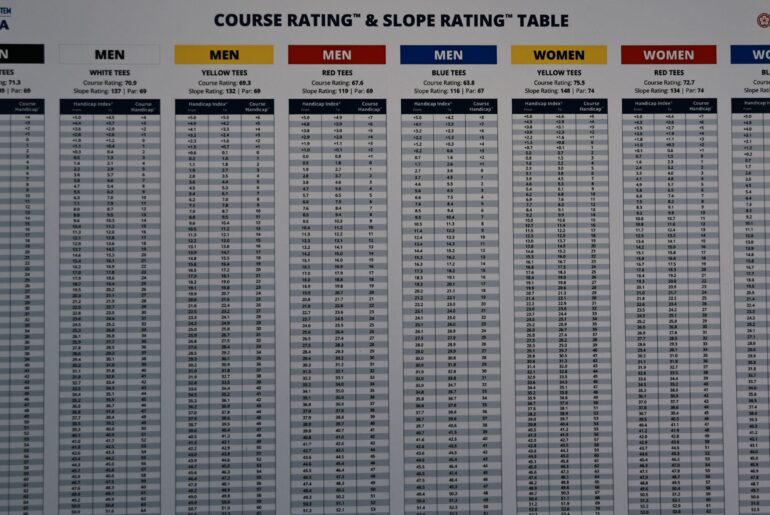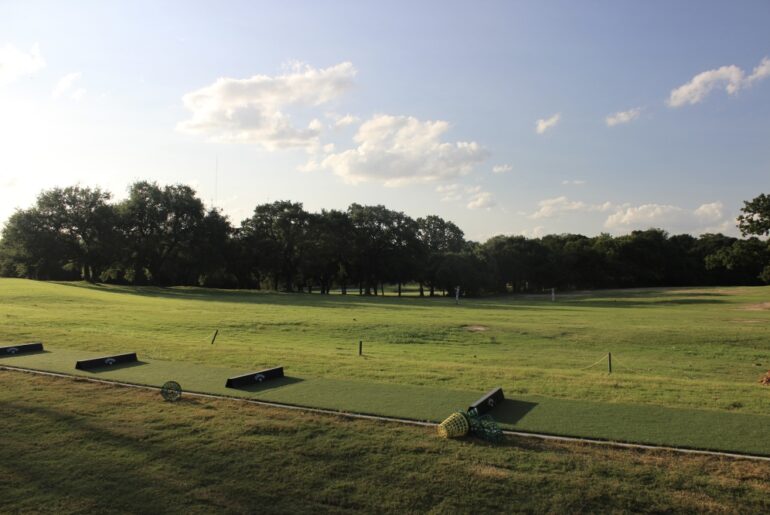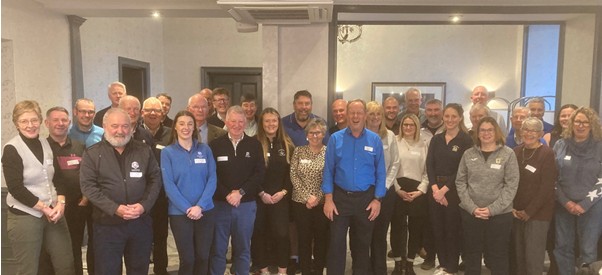Canadian anger at President Donald Trump’s rhetoric and tariffs is hurting northern U.S. golf courses that typically rely on a strong flow of cross-border day-trippers and weekenders for business. It’s a crisis for some courses and suggests snowbird havens of Arizona and Florida could see fewer rounds this coming winter, too.
“There was one day I spent in the office answering calls, and by the end of the day, when I left the office, I had cancelled about 4,400 rounds,” Scott Delair—general manager of the Malone Golf Club, a 36-hole course in upstate New York that draws heavily from Canada—said on a video call. “Our business model is built around Canadian tourism … We typically do 7,000 to 8,000 rounds on stay-and-play packages a year, and we’re trending to do less than 1,000.”
Advertisement
More from Sportico.com
Efforts such as promoting the club more to downstate New Yorkers are producing “small wins” but won’t keep the club from seeing a revenue drop of about 20% this year, according to Delair.
The Malone Golf Club isn’t alone. The New York Golf Trail, an association of 26 courses that sell multicourse play packages, has seen a 38% drop in sales this year, with an 83% drop in bookings by Canadians, according to data provided on an early August National Golf Course Owners Association membership meeting available on YouTube. While little comprehensive national data is available, a survey of NGCOA members shows 88% expect Trump’s tariffs on Canada to have a slight to significant impact on their business.
“There’s a fairly substantial reaction to Trump’s tariff, a feeling that there’s a double crossing of decades of mutual respect,” Jeff Calderwood, CEO of NGCOA Canada, said on a phone call. “The feelings are deep in Canada … It takes quite a bit to pull out the deep resentment for what’s being thrown at us.”
Advertisement
Recent data on border crossings and Canadian cell phone use in the United States shows a 24% to 30% drop in Canadian visits to the U.S.
Canadians who drive over the border are worth about $1,000 per person, per trip—a not-insignificant blow to New England and New York courses and their communities, according to information in the NGCOA meeting.
But while the drop is hammering northern U.S. courses, it’s been a boon for golf courses on the Canadian side of the border, Calderwood said. “We’re not done with golf season yet, and it looks like we’re going to come in a couple of percentage points better for golf this year than last year, and last year was a very, very strong year.”
Golf has been trending strongly in Canada, with the country’s industry up about 30% from the pandemic, which was a boom period in and of itself for U.S. and Canada courses.
Advertisement
Canadian duffers will probably end up spending about $75 million in rounds this year. “Demand is so high that revenues are outstripping expense increases, but the tariffs are certainly increasing the cost of goods that a Canadian golf course requires to operate. It’s not easy street by any means,” Calderwood added.
American course owners are hoping Canadian anger is leveling off, but Malone’s Delair says he isn’t seeing it. “It feels a lot like the initial weeks of COVID, but … there was federal relief funding for businesses during COVID. This time there isn’t any.”
How that will impact the winter season in popular Canadian snowbird locales including Arizona, South Carolina and Florida isn’t clear. Canadian business publication The Logic reported two weeks ago that data it saw on Airbnb, VRBO and other property management companies show that snowbird trips south are the same as usual.
On the other hand, Air Canada has cut capacity to U.S. locations and increased it to Mexico and the Caribbean, though the outlook on winter travel to the U.S. isn’t clear, according to the company on a July earnings call. U.S. course owners are hoping some of the decline is based on currencies—the Canadian dollar is about 3% weaker from one year ago—but the fact the Loonie has gained 4% against the greenback since Trump took office doesn’t appear to have helped.
Advertisement
Even with the mixed indications for winter golf, course owners are nervous, NCGOA CEO Jay Karen said on a video call. “We’re hearing from our own members, ‘We’re actually seeing a drop, we need to get some discussion going that this is actually happening,’” Karen said. The NCGOA survey of members shows that 18% of course owners already are experiencing a decrease in current or advanced bookings from Canada, with another 12% of U.S. membership anticipating a decrease.
NGCOA Canada’s Calderwood is pessimistic on a rebound occurring for U.S. courses next year. “It’s a bigger undertaking to cancel your [planned] trips. … If this trade war persists, next year will be much more severe. It won’t involve canceling trips, it’ll involve not making the plan in the first place,” Calderwood said. “Some of it, I feel, is permanent damage.”
Best of Sportico.com
Sign up for Sportico’s Newsletter. For the latest news, follow us on Facebook, Twitter, and Instagram.







